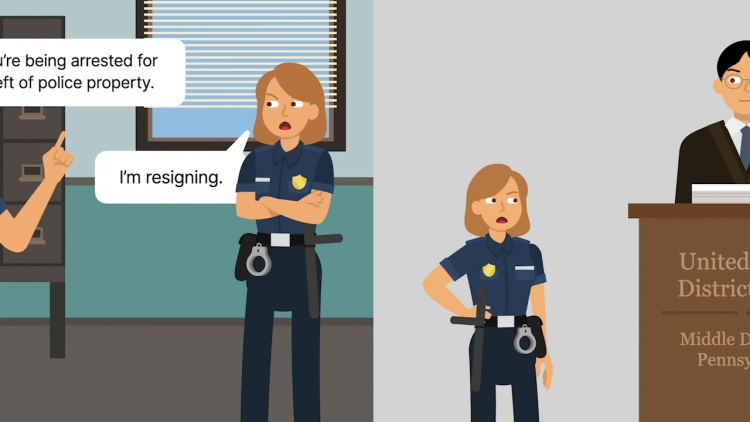Pennsylvania State Police v. Suders
United States Supreme Court
542 U.S. 129 (2004)

- Written by Sara Rhee, JD
Facts
Nancy Drew Suders (plaintiff) was employed by the Pennsylvania State Police (PSP) (defendant). Suders was supervised by three male officers (the supervisors) who regularly subjected Suders to vulgar comments and sexual gestures. Suders reported the supervisors’ behavior to PSP’s equal employment opportunity officer, who advised Suders to file an internal complaint but did not advise Suders on how to do so. Two days later, Suders was arrested by the supervisors for theft. Prior to the arrest, the supervisors had informed Suders that she had failed several required computer-skills exams. Suders discovered that the supervisors had hidden the exams and took the exams, believing that the exams were her property. Suders resigned and sued PSP, alleging sexual harassment and constructive discharge in violation of Title VII of the Civil Rights Act of 1964 (Title VII), 42 U.S.C. § 2000e et seq. The district court granted summary judgment for PSP. The district court found that, although Suders had sufficiently alleged a hostile work environment, PSP could not be held vicariously liable for the conduct of the supervisors, because Suders had failed to take advantage of PSP’s internal procedures for reporting harassment. The United States Court of Appeals for the Third Circuit reversed. The United States Supreme Court granted certiorari.
Rule of Law
Issue
Holding and Reasoning (Ginsburg, J.)
What to do next…
Here's why 908,000 law students have relied on our case briefs:
- Written by law professors and practitioners, not other law students. 47,100 briefs, keyed to 997 casebooks. Top-notch customer support.
- The right amount of information, includes the facts, issues, rule of law, holding and reasoning, and any concurrences and dissents.
- Access in your classes, works on your mobile and tablet. Massive library of related video lessons and high quality multiple-choice questions.
- Easy to use, uniform format for every case brief. Written in plain English, not in legalese. Our briefs summarize and simplify; they don’t just repeat the court’s language.







